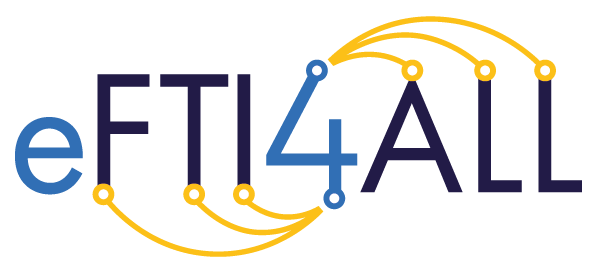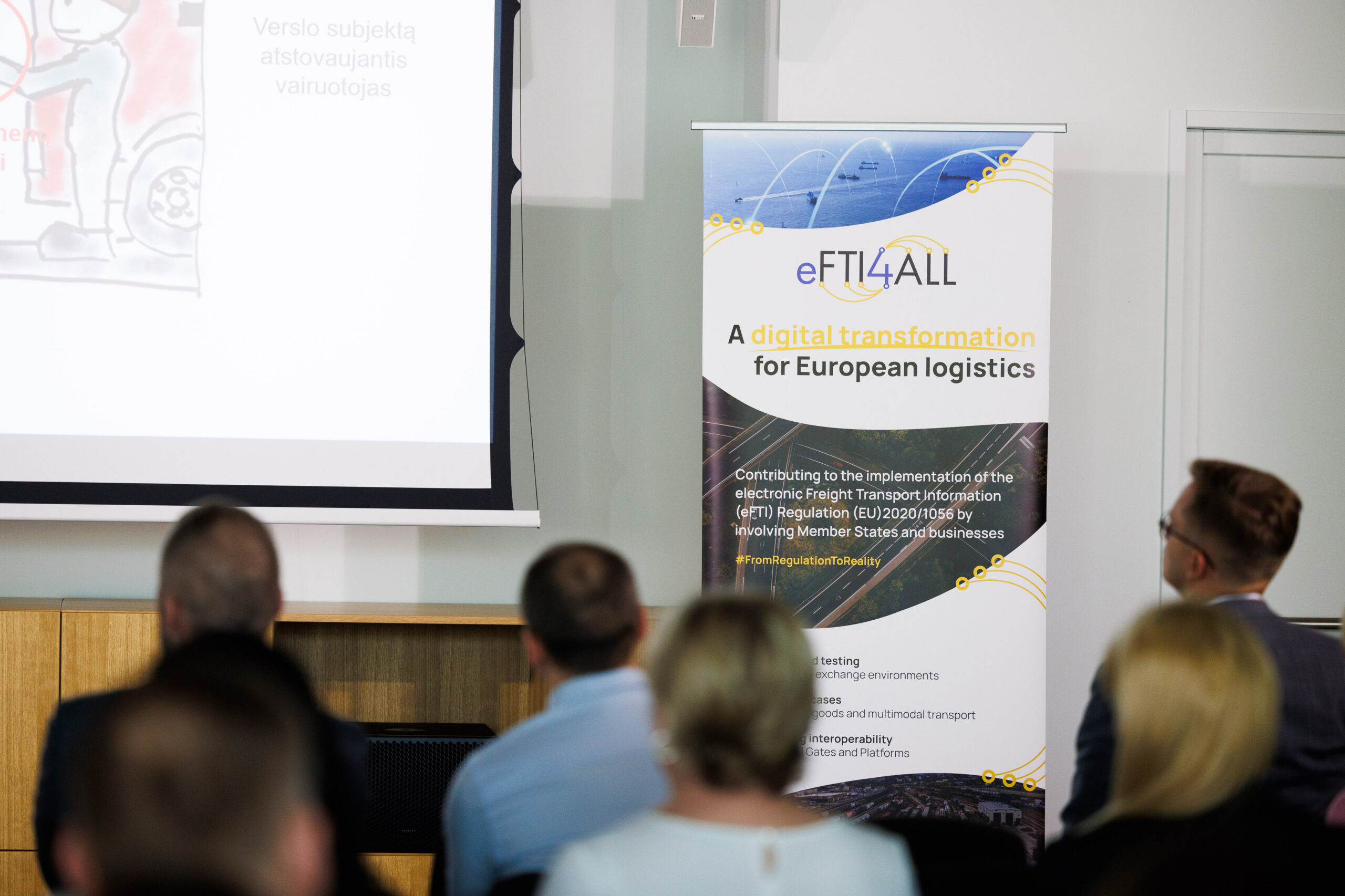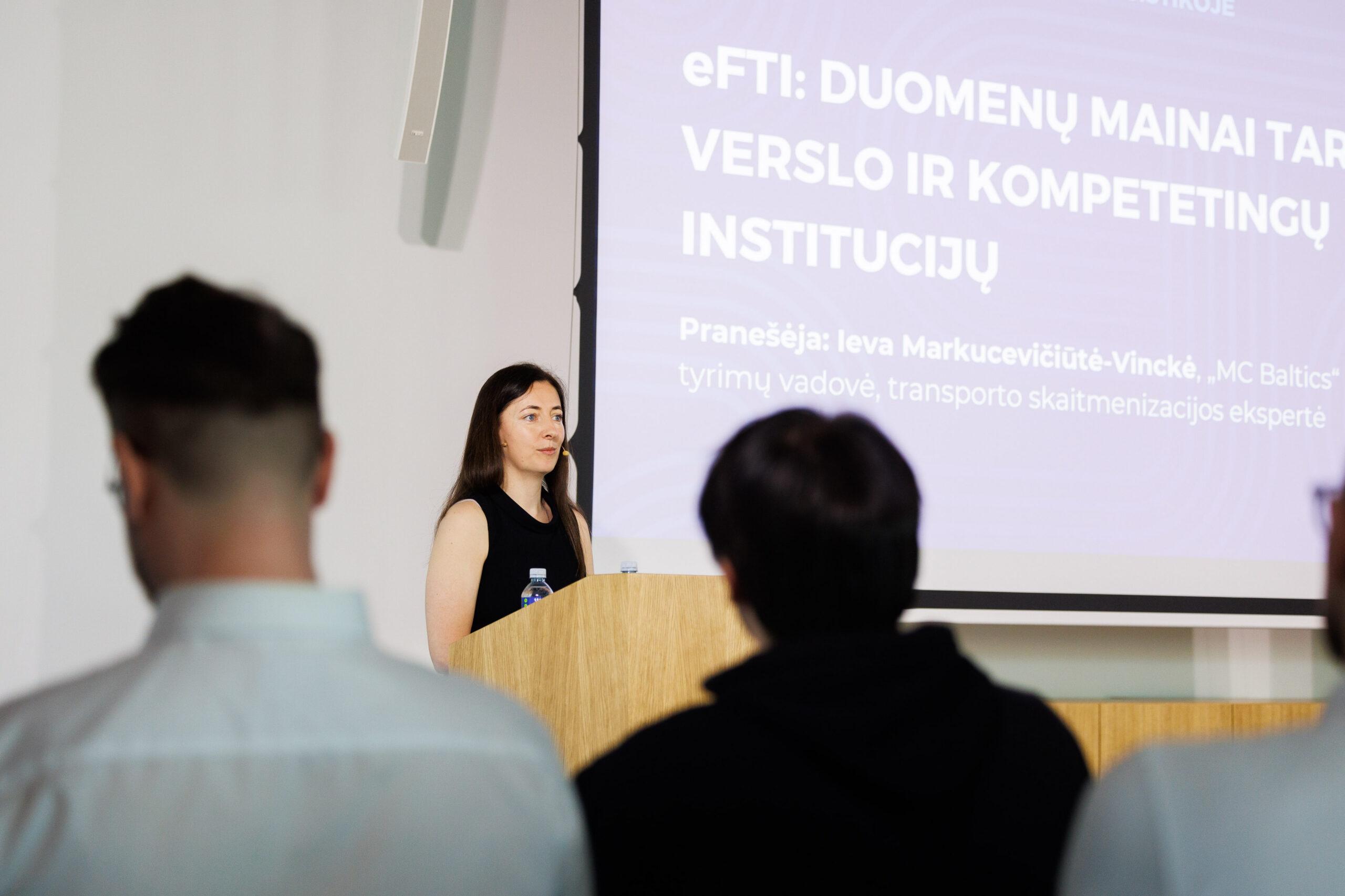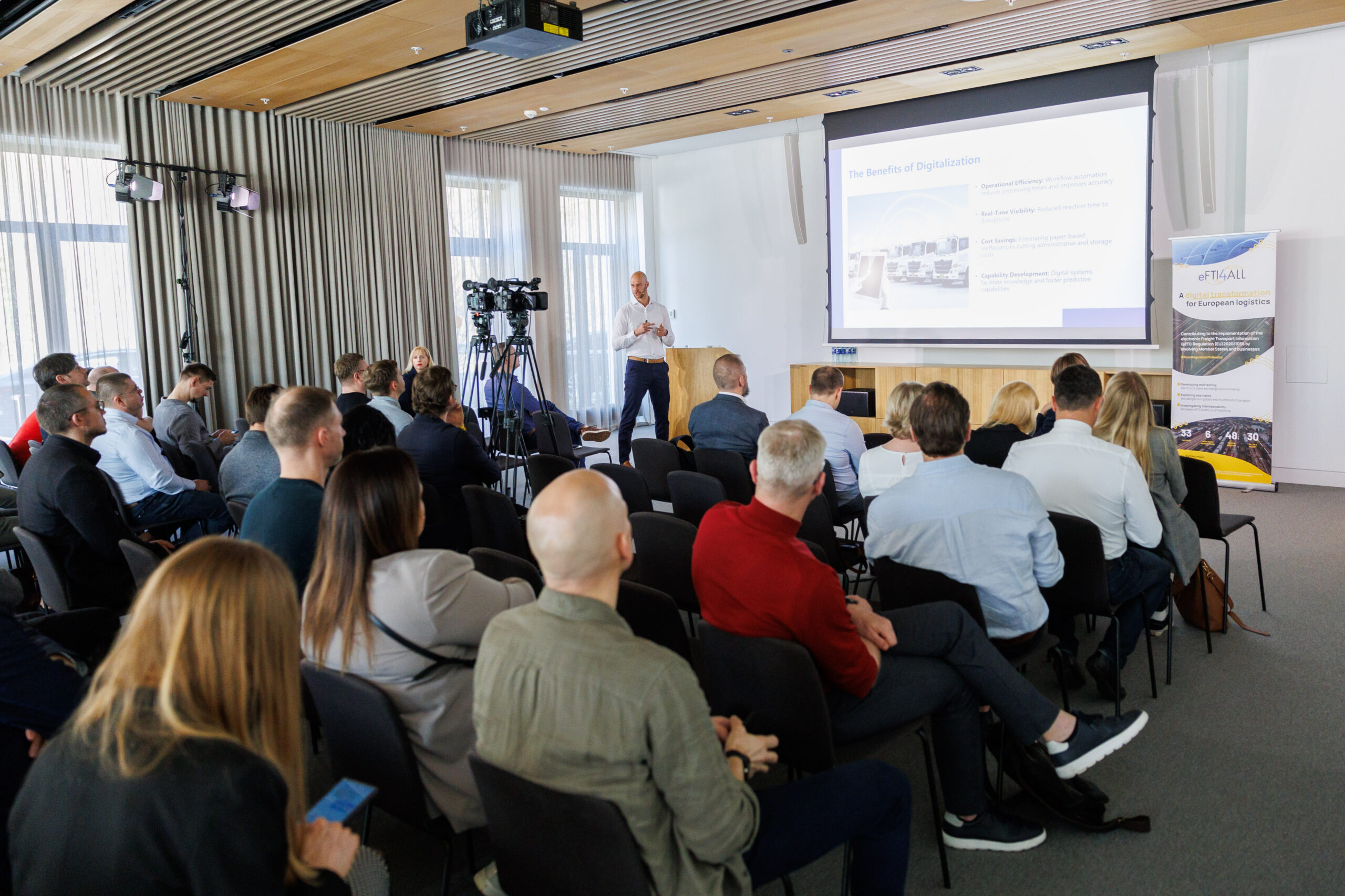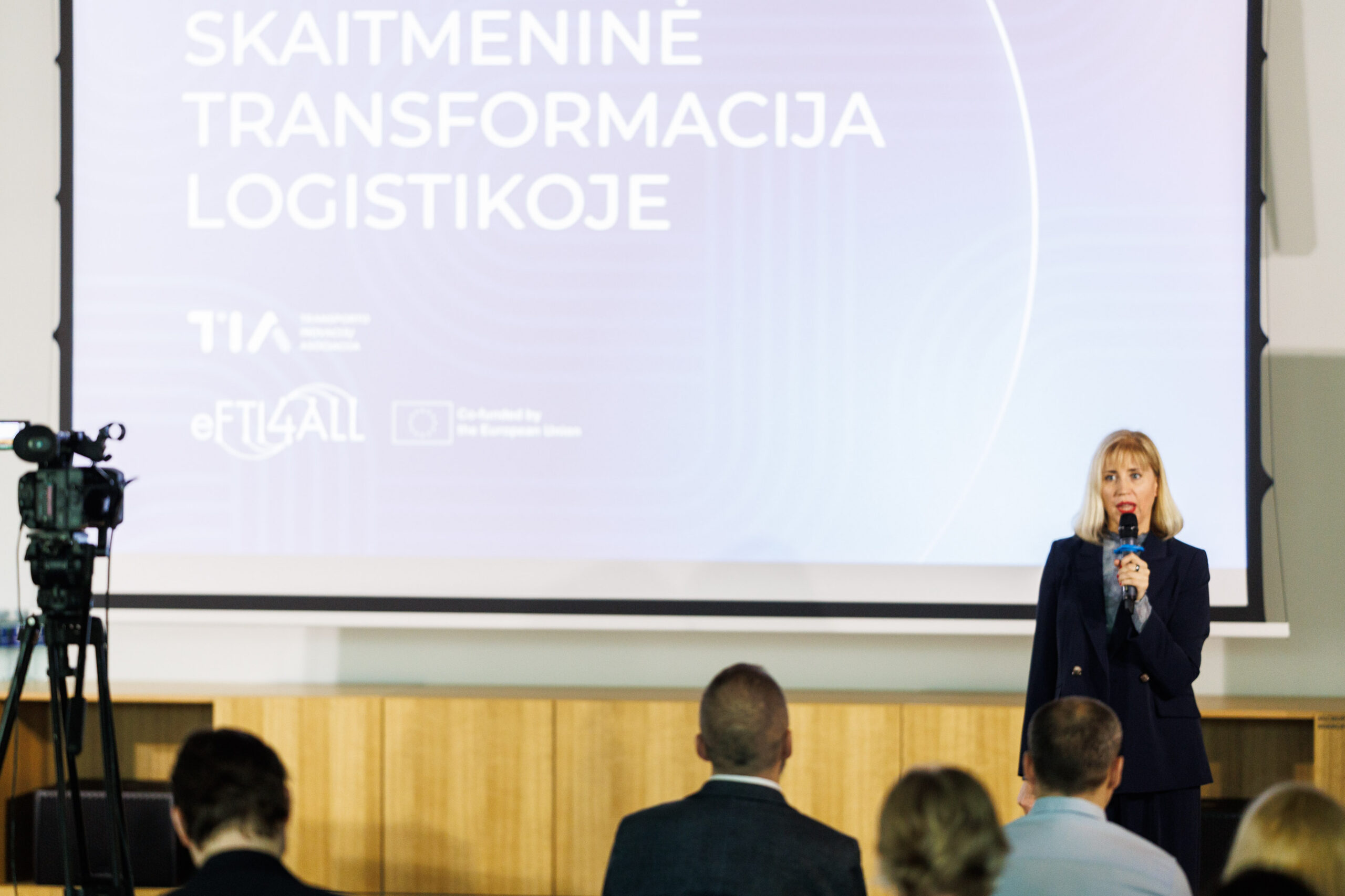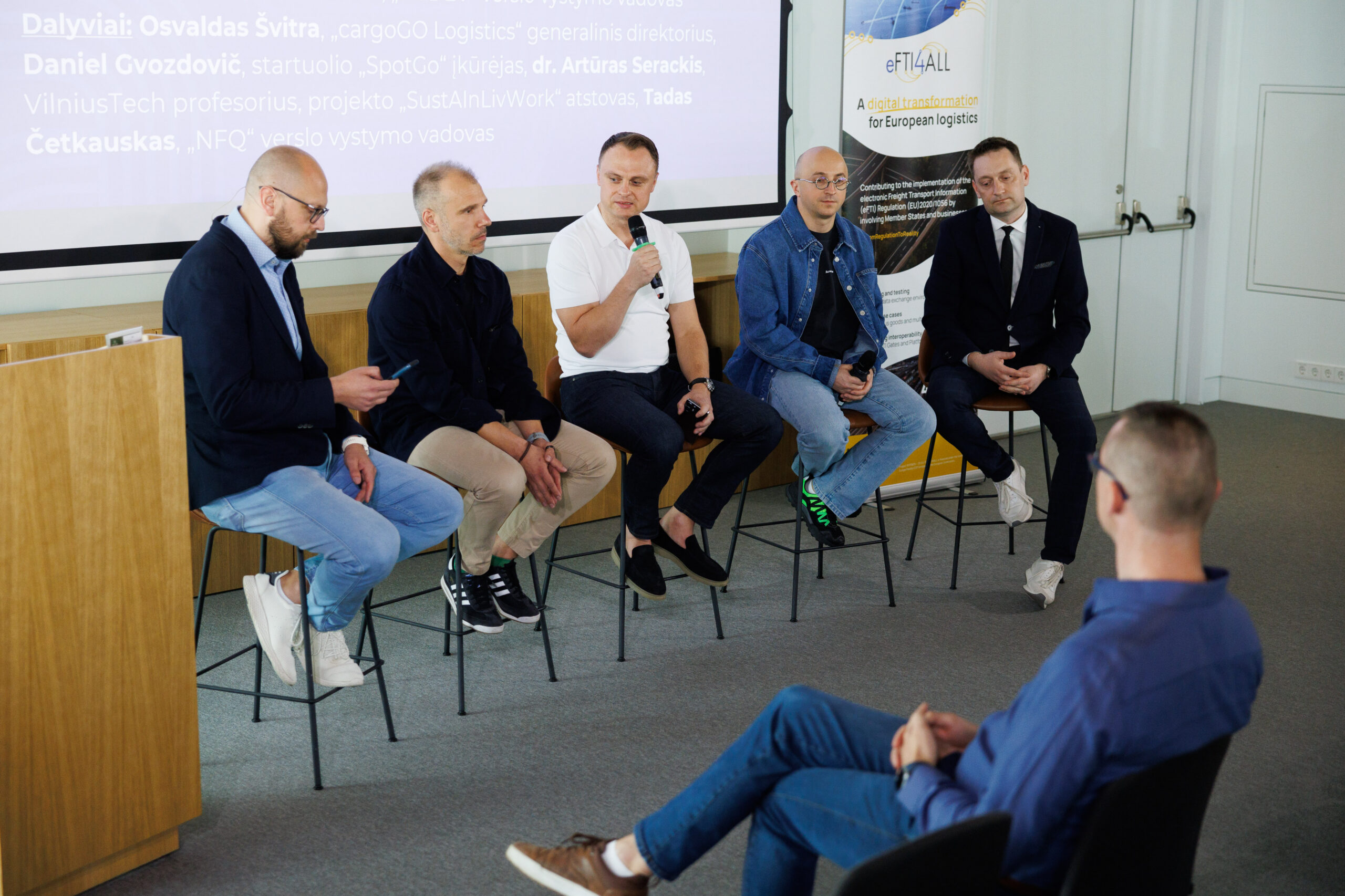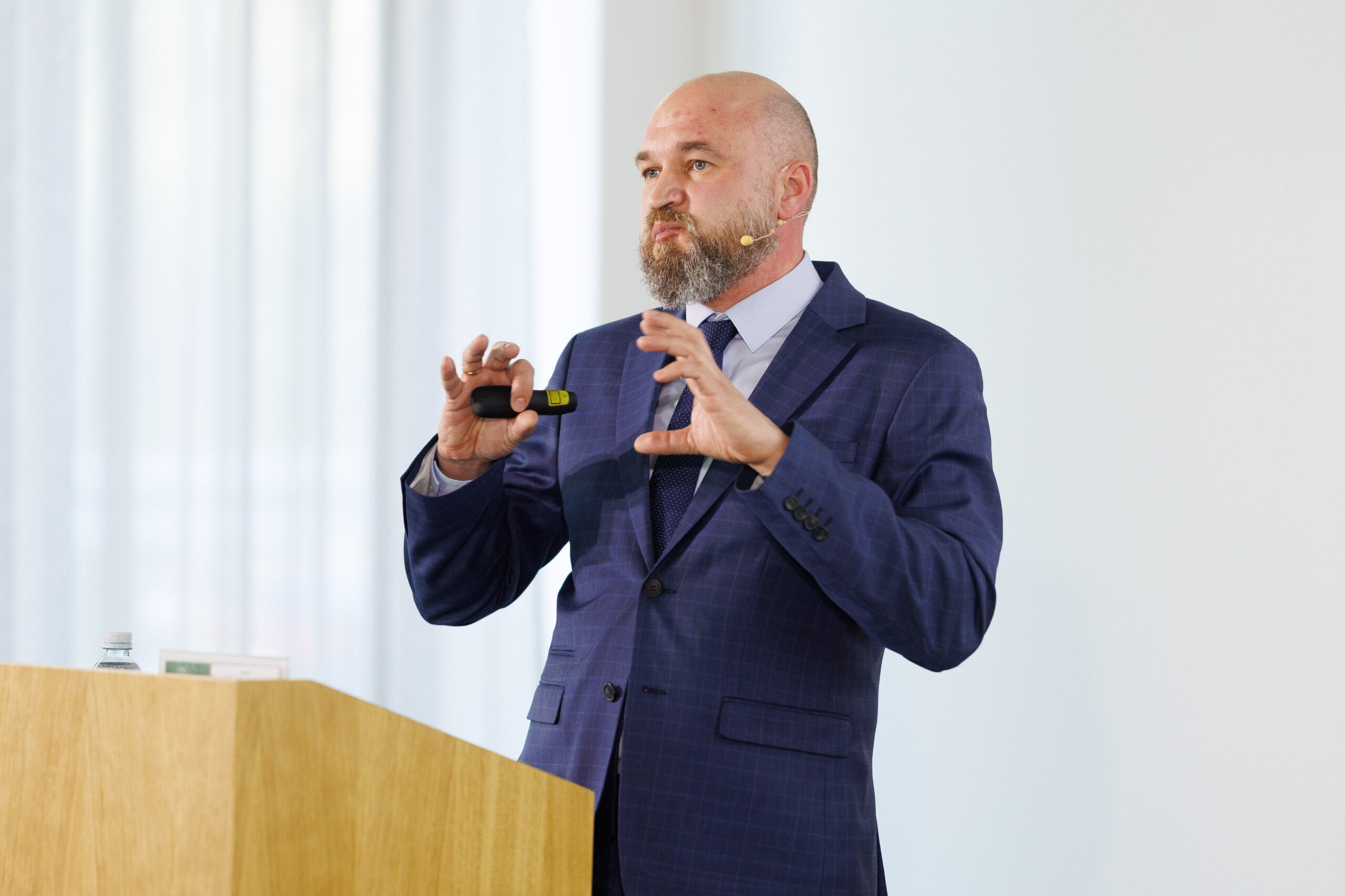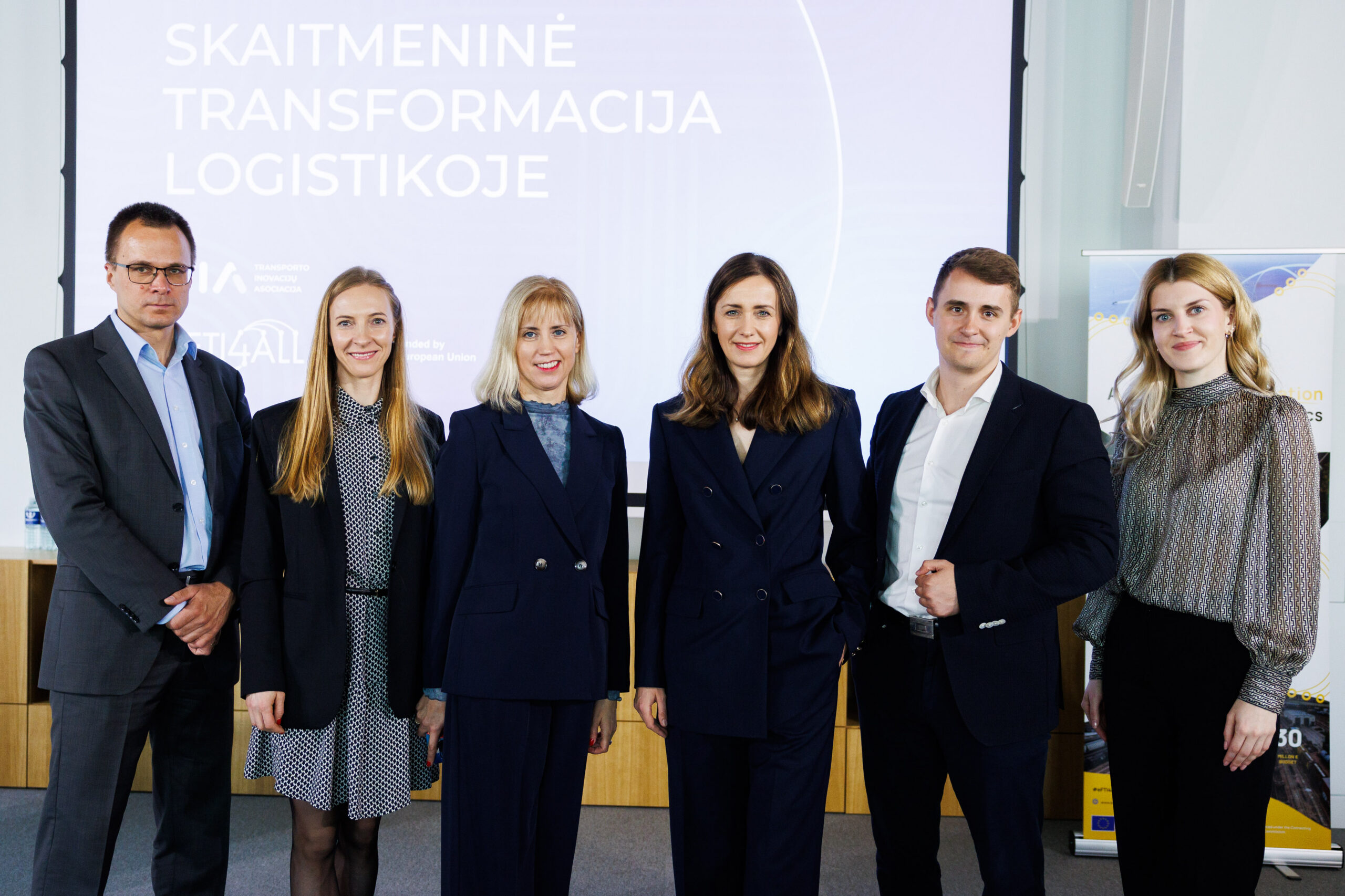On Thursday, 17 April 2025, the Lithuanian Transport Innovation Association (TIA) organised the high-level conference “Digital Transformation in Logistics”, bringing together stakeholders from the public and private sectors as well as technology providers. The event served as a timely forum to discuss the challenges and opportunities that the logistics sector is facing in light of upcoming EU regulations—and how to effectively prepare for the digital transition.
At the centre of the discussions was the Electronic Freight Transport Information (eFTI) Regulation, which will require all EU Member State authorities responsible for transport inspections to accept electronic freight transport data from July 2027. As explained during the event, Lithuania is currently developing its own national eFTI Access Point, designed to function as a single gateway for authorities such as the tax agency, customs office, food and veterinary authority, and others to access relevant transport data directly—eliminating the need for paper-based documentation. This system is expected to not only reduce administrative burden and enhance supervision, but also significantly improve data quality. For businesses, the transition to eFTI-compatible systems provides an opportunity to simplify their operations by submitting information directly from internal ERP or TMS platforms, avoiding duplicated processes.
The event also featured insights from Dr. Sebastiaan Laloo, representing PIONIRA NV, who presented current statistics showing that the digitalisation of logistics in Europe is still progressing at an uneven pace. While a majority (78%) of large logistics firms report being familiar with eFTI requirements, the rate drops to just 34% among SMEs. This discrepancy points to the need for broader outreach and active participation from all actors in the logistics chain to ensure a coherent and efficient digital ecosystem.
The conference also highlighted how aligning eFTI with eCMR and CO₂ performance data can support businesses in streamlining reporting, accelerating financial transactions, and ensuring compliance with ESG and CSRD frameworks. These tools are not just regulatory mandates but strategic assets for companies aiming to enhance operational transparency and sustainability.
In addition, the session touched on the NIS2 Directive, which imposes new obligations on companies to bolster their cybersecurity resilience over the next two years. This includes implementing risk management protocols, monitoring systems, security operations centres (SOCs), and employee training.
Finally, the AI Act—another major upcoming piece of EU legislation—was discussed in the context of logistics. From 2025 onwards, companies will need to ensure transparency in their use of AI, develop digital literacy among staff, thoroughly test systems, and maintain detailed compliance documentation. Failure to comply with these new requirements may lead to severe financial penalties.
The event successfully fostered collaboration between Lithuanian institutions, private companies, and EU-wide experts, and underscored the importance of coordinated efforts to navigate and leverage the digital transformation of the logistics sector.
